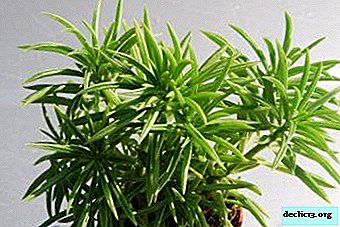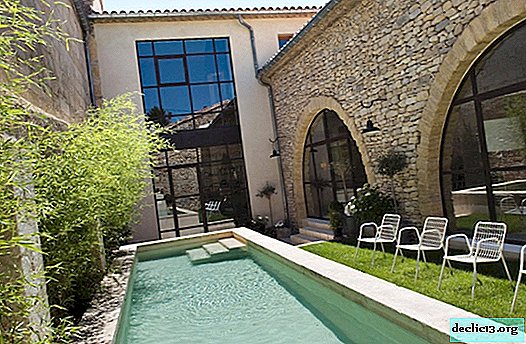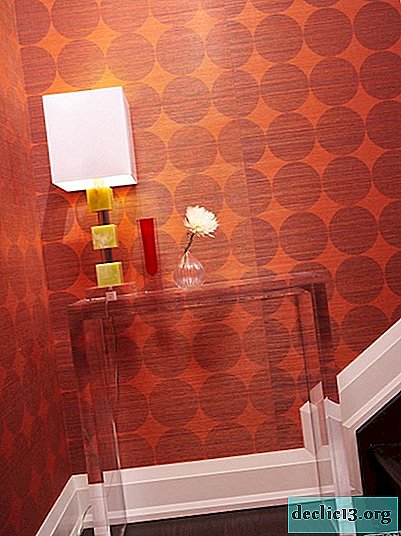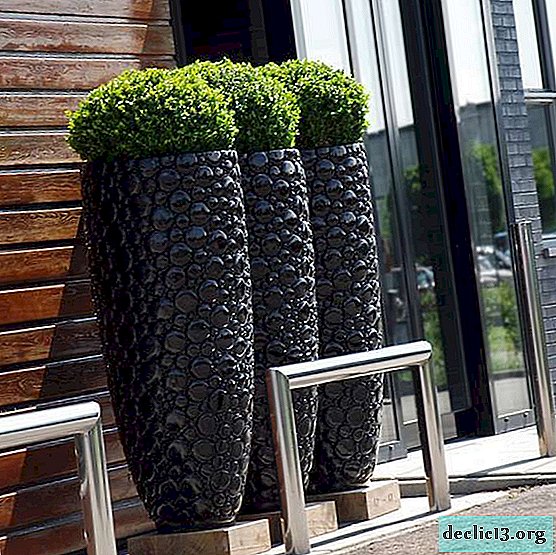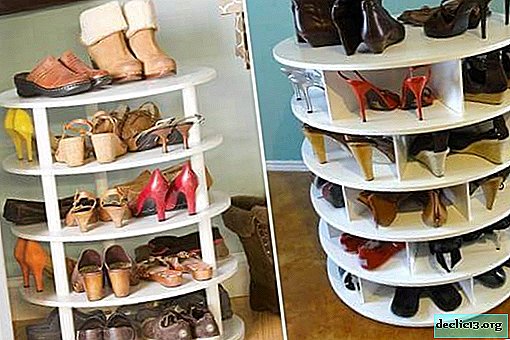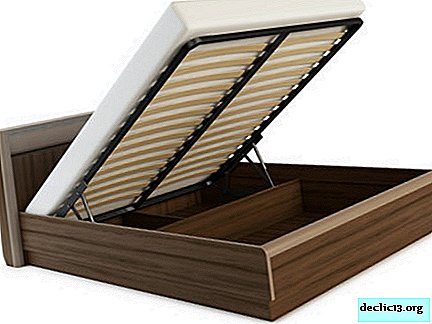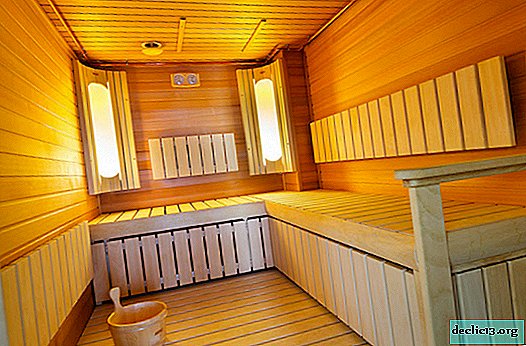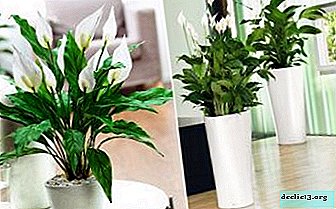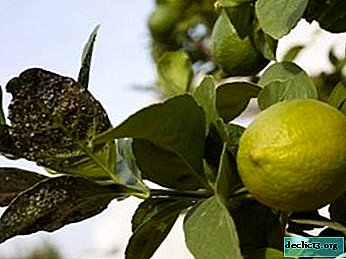Types of fillers for the chair bag, the algorithm for updating the granules in the case
A bag chair or a pear is very popular, but when choosing, potential users often pay attention only to the appearance and size of the product, discounting the filler. Meanwhile, the durability of frameless furniture depends on the density of the latter. Moreover, just a high-quality filler for a bean bag guarantees the comfort of using the “pear”: relieving muscle tension and the proper relaxing effect after a hard day. That is why when choosing this popular interior item, it is important to consider not only its appearance, but also the properties and characteristics of the internal component.
What is a
Fillers for frameless furniture play one of the key roles in the convenience and practicality of the product - it is they who determine the comfort of the seat, are responsible for the durability and environmental friendliness of the chair. Over time, the filling tends to decrease in volume, as a result - ottomans are deformed and become unsuitable for further operation. To avoid disappointment, it is necessary even at the stage of product selection to figure out what the bean bags are made of and which filler has the highest characteristics. The basic requirements for any of them are reduced to three conditions:
- balance of softness and elasticity;
- operational safety;
- minimum percentage of shrinkage.
Expanded polystyrene is considered one of the softest materials: it combines elasticity and ductility, is resistant to shrinkage and shows good performance when tested for durability.
A distinctive feature of quality products is the availability of certificates that guarantee that the product has been tested and subjected to examination. This means that the filler for the chair is safe, suitable specifically for frameless furniture, meets internationally accepted norms and standards. Modern equipment and the processing technologies provided for it allow 100% polymerization of the styrene contained in the products. Hazardous substances are completely eliminated, the material does not emit harmful elements.
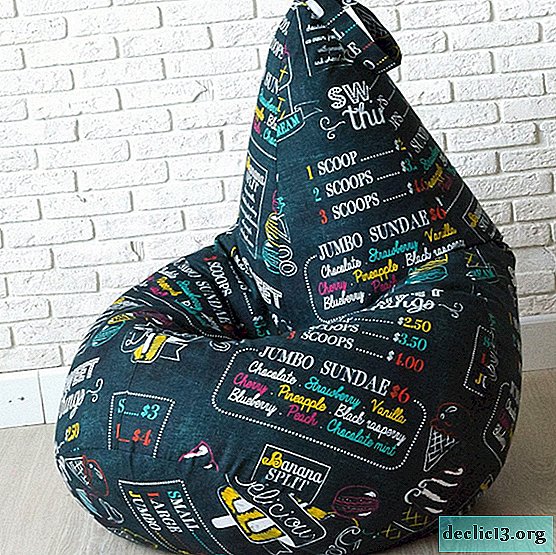


Types of filler
When choosing a filler for a pear, you can give preference to both natural and artificial materials. An important condition for any of these options is that the raw materials must be completely dried. Raw products will cure quickly and may even mold. Its characteristics will directly depend on the filling of furniture.
The basis of the material is always taken granular polystyrene foam - these are small balls of glass-like substance, which are characterized by good flowability. Their accumulation creates volume and has an orthopedic effect on the back of a person. Such a filler for a chair allows manufacturers to not be limited in the design of frameless furniture and fantasize with forms.
Often, brands present their fillers as a solid ball, which in fact can turn out to be crushed polystyrene or crumb. Only having understood the difference in fractions, it will be possible to understand what a chair bag consists of:
- Primary granule. This is a solid ball. Its peculiarity lies in the fact that before processing each element, the material is laid out in a thin layer. After exposure to temperature, each ball increases in size. Loose particles are distinguished by a smooth surface, and their diameter is not more than 1 cm. The primary raw material for bag chairs has elasticity. These granules provide maximum comfort. Thanks to the texture, chairs with filler from balls easily return to their previous shape, do not sag and do not lose elasticity even after intensive use. When a person sits down, the granules spread evenly on the chair and are placed around the perimeter of the body. Primary raw materials do not contain any harmful substances - the occurrence of fungus and mold is excluded. In addition, polystyrene balls do not support combustion.
- Secondary granule. In addition to the main component, it contains crumbs, the production of which is realized by crushing whole raw materials into the smallest elements. Granules after grinding have a different shape, therefore, such a product is considered to be less quality. Although after processing, the functionality of the polymer is fully preserved. Secondary granules are the result of non-waste production. When the primary raw material remains after making toys for Christmas trees, dishes, it is swept away in a special crusher - as a result of processing, the residues turn into crumbs.
- Crushed polystyrene differs in its properties and functionality. Raw materials are not returning well to their previous shape; they quickly get off with heavy use. In this case, you often have to add new material to the chair, sometimes up to 4 times per season. In addition, the replacement or addition of small foam at home can be a real problem, since the air is instantly filled with super-volatile particles of this crumb.
Secondary polystyrene foam quickly loses its soft plastic properties, turns into a solid mass. It contains an admixture of glue, mold and fungus are easily wound up in the raw materials. In addition, the crusher is not fireproof.
 Primary granule
Primary granule Secondary granule
Secondary granule Crushed polystyrene
Crushed polystyreneVarious materials are also used to soften frameless furniture, which will take on the load of the body, minimize rigidity. In the manufacture of chairs are most often involved:
- A little foam rubber. It is able to completely fill the gaps that form polystyrene foam balls. Disadvantages - quickly loses its shape, absorbs odors.
- Hollofiber. The most common raw materials, among those used to soften the main filler, are polystyrene foam balls or crumbs. This substance perfectly performs its function, as a result of which the furniture becomes comfortable. It is important to correctly calculate how much filler is needed for the chair - if it is not enough, the product will remain stiff. The advantages of holofiber include hypoallergenicity and resistance to moisture. In addition, it is breathable, does not retain third-party aromas. The disadvantage is that this material does not hold volume for long.
- Fluff. It is lightweight, but it can cause an allergic reaction, contributes to the appearance of dust mites. In addition, over time, fluff gets lost, so it has to be changed quite often.
- Sintepuh. The presence of this material inside the product indicates that the chair with a filler made of balls will last a really long time. It is a fluffy elements that prevent shrinkage. Sintepuh has hypoallergenic properties, the chair does not sit down, does not deform over time, so frameless furniture filled with this material has a better appearance.
- Hay. Such a filler will have a special aroma and softness, but poorly dried raw materials can lead to mold and mildew.
- Wood shavings. Cedar and pine sawdust - the cheapest variations of this material, differ in medicinal properties. Needles are the most popular, the aroma of which calms and relieves headaches. Among the shortcomings of wood chips - fragility, low ability to ventilation.
The most popular softeners are holofiber and syntepuh - these materials are the most affordable and also durable.
 Hollofiber
Hollofiber Foam rubber
Foam rubber Fluff
Fluff Sintepuh
Sintepuh Wood shavings
Wood shavings Hay
HayHow to calculate the required amount
The standard size is considered to be a chair-bag with a volume of 300-350 liters. For adding polystyrene foam to settled frameless furniture, 100 liters is enough. This is the volume of a standard package of filler, which can be purchased in specialized stores, it will be enough to return the pear chair to its original characteristics and properties.
As for children's models, their volume is an order of magnitude less - 200 liters. To update such furniture, it is enough to fill up about a third of the total volume of "balls". Updating the filling of the children's pouf is very rare, since shrinkage is slow due to the small weight of the child.
Filling with polystyrene foam balls is carried out gradually until the chair returns to its previous shape.

 Top-up filler
Top-up fillerFilling tips
Regardless of whether the cover is made according to an individual sketch or purchased ready-made, you need to know how the chair bag is filled. It is extremely difficult to fill the poufs in quality, it is important to follow the sequence of steps, otherwise small plastic filling balls can easily fly around the room. The algorithm of actions is as follows:
- Prepare an empty plastic bottle with a narrow neck.
- Conditionally divide it into three parts, cut it so that in the hands there remains an upper one, resembling a standard plastic watering can-funnel.
- Insert the prepared bottle with its neck down into the cover of the bag-chair, fixing it with tape or rope.
- Feel free to pour the balls, gradually filling them with a wide part of the plastic container.
By analogy, you can use a paper funnel or a large plastic watering can, if it is in household use.
You can fill up the material in another way. The method consists in using a vacuum cleaner and a nylon stocking:
- Take the tube from the vacuum cleaner and pull on it a nylon stocking.
- Open the bag with the filler and the inner cover of the chair.
- While holding the handset with one hand, turn on the device with the other.
- Without ceasing to hold the pipe, lower it into a container with balls - the filler for the bean bags will stick to the stocking.
- Turn off the vacuum cleaner, put the tube in the case - just shake it a little, as all the balls are inside.
With this method, not a single granule will be outside the bag. But to fill up the settled filler for a chair is easier for two, making sure that there are no small children and pets nearby. It will not be superfluous to prepare a container with water so that the electrified balls can be easily assembled.









